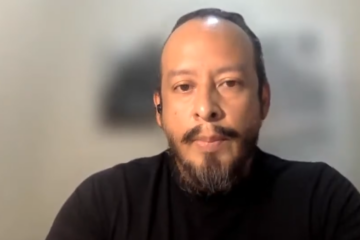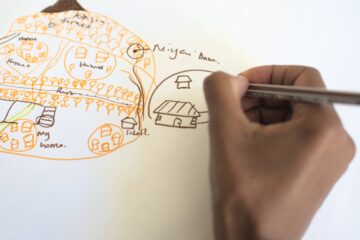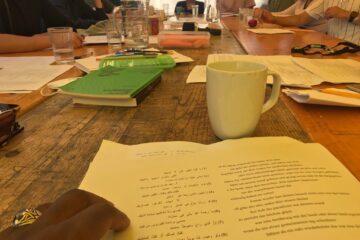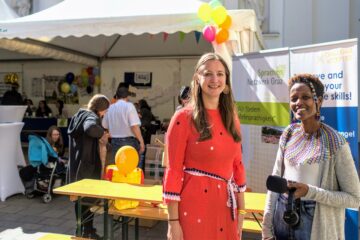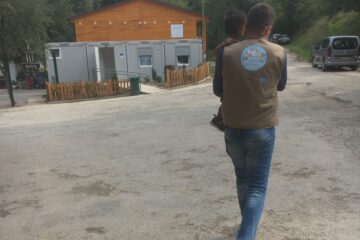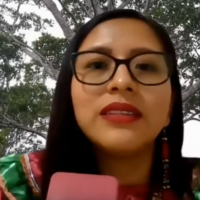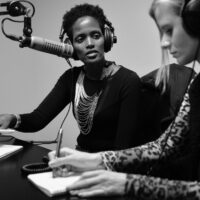If you think about the Amazon rainforrest — what do you imagine?
The green, the trees, all the plants, the animals, the insects, the spiders, anacondas, birds, kaimans, monkeys, dolphins, jaguars? On the ground, at the trees, in the water… life all around.
Within all that, the people who live in the Amazonia region for thousands of years.
And now imagine the Amazonian rainforrest is shrinking, burnt down, poisoned and replaced by roads, monocultures, oil drilling and refineries.
The Amazonian ecosystems are in danger of collapse. For what? Profit? Progress? Wealth? At what cost?
Indigenous resistance is rising to protect this unique ecosystem and habitat for the Amazonian cultures. How does the destructive forces affect especially the lifes of women? How do women get organized and resist in order to overcome patriachal power? What kind of differences and similarities can we find between indigenous women in the Amazon and Kenya?
Peninah Lesorogol Is talking to Gianella Sánchez Guimaraes, is a lawyer and spokesperson for the Cuencas Sagradas initiative in Peru. Christina Korak is interpreting from Spanish to English.
This is the first of three interviews and broadcasts about this movement and collaboration of civil society in the Amazon in Peru and Ecuador.
Christina Korak, is an Interpreter and has her research focus on «Translation and minorities», «Translation from a cultural studies and sociological perspective» of the Institute of Translation Studies at the University of Graz. Translation and Indigenous Cosmovision.
Peninah Lesorogol studied Tourism and is a member of the Samaburu Culture in Kenya. Peninah is also an artist and organizes local rural communities, now she is supporting agro-forrestry project for food security in times of draught and to create income to get access to education especially for girls and women.
Gianella Sánchez Guimaraes is an indigenous lawyer from the Shipibo Konibo community in Perú. She is the youth representative of the Indigenous Association for Development in the Peruvian Rainforest AIDESEP and spokesperson for the Cuencas Sagradas initiative. As an indigenous activist, Gianella campaigns for the rights of women and indigenous communities.
The interview was recorded in the course of the Tribuna Festival 2022. Organized by Christina Korak and Rafael Schögler in collaboration with the Iberoamerica Institute, supported by the Institute of Translation Studies and the Institute of Romance Studies of the University of Graz.
Moderation, Audioproduction: Walther Moser.
Fotocredits: Christina Korak, Walther Moser









